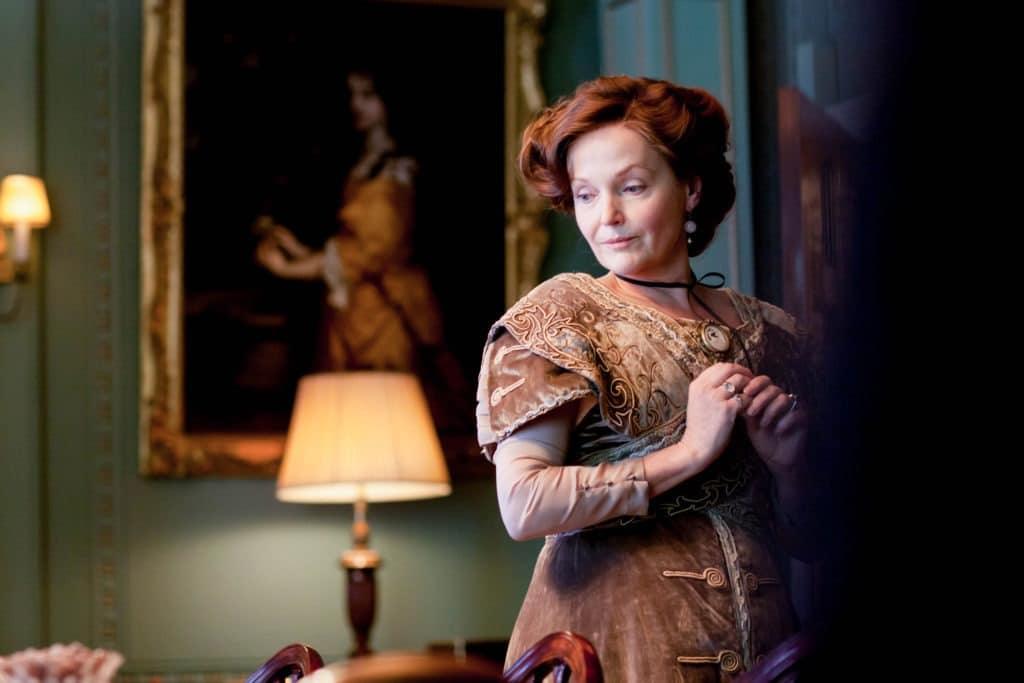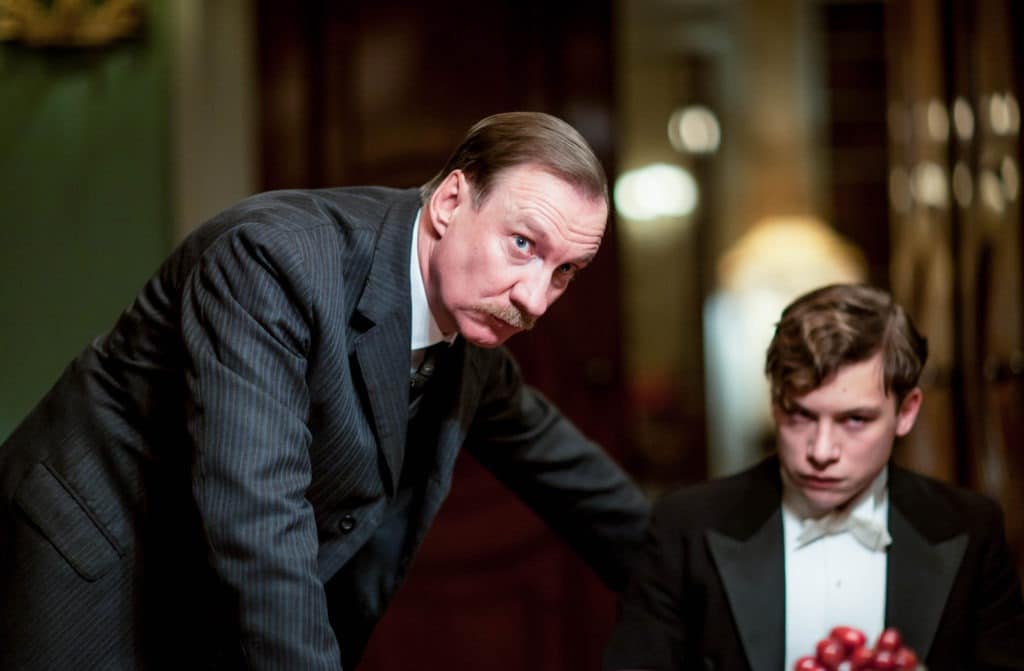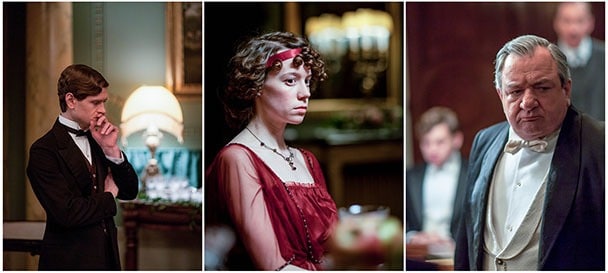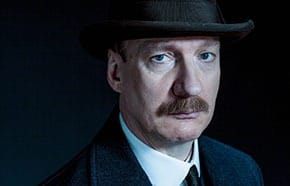Reviews
Review: An Inspector Calls
There has never been a time more relevant for J. B. Priestly’s An Inspector Calls. Certainly never a time more poignant. BBC One’s adaptation of the iconic detective thriller therefore couldn’t be more welcome, and it certainly doesn’t disappoint.
Part of the BBC’s season of twentieth century adaptations, An Inspector Calls – one of Priestly finest works – is adapted by playwright Helen Edmunson, offering everything a Sunday night detective drama should – a strong script, perfect period detail, compelling performances and a take-home message relevant to everyone in today’s complicated world.
“I can’t believe in people, I have to believe in something or I’d fall, fall through the cracks”, the voice of an unknown, desperate woman opens. This is England, 1912. Grey, industrial, a society where the rich are rich and the poor stay poor and where women are treated, spoken to and paid differently.
Immediately we’re introduced to the Birling family and their impressively overbearing house; servants dress the dinner table as the lady of the house, Sybil Birling, played convincingly by Miranda Richardson, chooses which pearls to wear. Her suited husband, Arthur Birling, a fine performance by Ken Stott, leaves the family factory for the day with his son Eric. In their wake female workers continue with the grind, their day far from over. It’s a simple, but effective introduction to the family.
Later that evening we’re celebrating with the Birlings in their dining room. Daughter Sheila, played thoughtfully by Chloe Pirrie, is engaged to Gerald Croft, the son of a rival business family. Everyone’s allowed a drink tonight, even the women.

It’s within these four dining room walls where the action will remain throughout, proving increasingly claustrophobic with the arrival of a mysterious police inspector, Inspector Goole.
Goole, played expertly by David Thewlis (none other than Remus Lupin in the Harry Potter films), brings news of the suicide of a young female. The Inspector is looking for answers as to why she took her own life and thinks the Birlings are the key to the mystery. But who is involved, and how?
Thewlis is everything you’d want in the Inspector. Physically he towers over the rest of the cast and his understated performance delivers a commanding presence. His dialogue is cleverly sparse to pack a punch with every line and he’s got a moustache any detective would be proud of.
Rapidly we discover Arthur Birling once knew the young woman, a spirited employee who tried to get a pay rise at Birling & Co for all women. These key moments we visit through flashbacks, which outline what life was like for victim Eva Smith at a time when her gender and social standing made her a second-class citizen. Arthur sacks her for her principles.
“What happened to her then may have affected what happened to her after,” back in the closing walls of the dining room Inspector Goole alludes to a chain of events, which are subsequently revealed as each family member is found to be as embroiled as Arthur in Eva’s demise.
Each character takes their moment to be questioned by Goole and confess. Each delivers a master class in acting, expertly controlled by Trewlis, a puppet master pulling the strings as the family fall apart.
Eric, played delicately by Finn Cole, is the last to fall foul of Goole and reveal the part he played; via a difficult attack scene we discover Eric forced the girl to have sex with him. She was pregnant with his child when she died.

As the family reflect on their individual and collective responsibility for the girl’s death, Goole judges, “You each helped to kill her, remember that. Never forget.” The ensemble play the silences well – the truth difficult to argue with.
Moving to the denouement, Inspector Goole’s iconic speech is taken as close to verbatim from the original play, and is more eerily fitting to recent events than writer Helen Edmunson, or Priestly himself, could have imagined: “There are millions and millions of Eva Smiths and John Smiths still left with us, with their lives, their hopes and fears, their suffering and chance of happiness, all intertwined with our lives, with what we think and say and do.”
The Inspector vanishes into the night and the family are left to digest his words in silence, while the audience digest their own decisions at home.
As the truth sinks in, the Birlings question Goole’s authenticity. Differing marginally from the original, we’re witness to Eva finishing her diary, book-marking it with her photo, and drinking the disinfectant that will kill her in the infirmary. The Inspector is present as a witness at one moment, and gone the next, cleverly leaving us equally wondering his validity.
Just as the Birlings convince themselves Goole’s a hoax their phone rings – a girl has committed suicide, a police Inspector is on his way. A ghost to darken their door again. Priestly’s ending reigns supreme.
A remarkable adaptation, this is one to be proud of, expertly delivering themes relevant to us now more than ever. None more so than the issue of a shared humanity, which should be brought to the forefront of everyone’s minds, and there’s no better twentieth century classic to do so than this one.
“We do not live alone upon this earth. We are responsible for each other. And if mankind will not learn that lesson, then the time will come, soon, when he will be taught it in fire and blood and anguish.”

Missed An Inspector Calls? Catch it now on BBC iPlayer.



Please note: Moderation is enabled and may delay your comment being posted. There is no need to resubmit your comment. By posting a comment you are agreeing to the website Terms of Use.